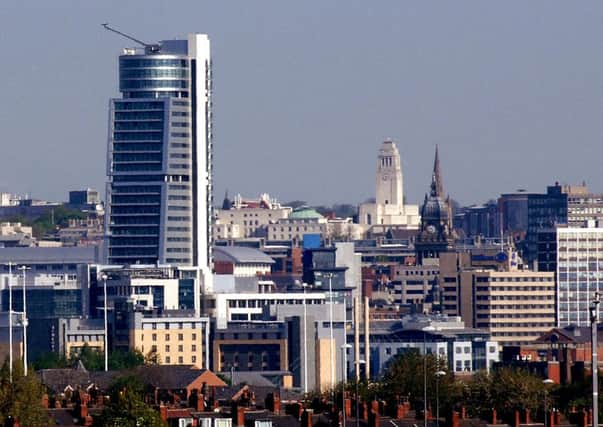Robert Brown: What Budget business rates review could mean for Yorkshire firms


The anticipated rise of around 0.83 per cent is not nearly as high as the expected four per cent council tax rise planned for many households, but that is hardly likely to have business occupiers dancing in the streets.
In Autumn 2016, businesses will find out the results of the Valuation Office Agency’s ongoing rating revaluation when new draft rateable values are published online.
Advertisement
Hide AdAdvertisement
Hide AdThis month’s new rates bills for 2016-17 will include a “Lord Kitchener-style” leaflet imaginatively entitled “Your draft rateable value is coming. You need to register now”. This means that now is the time for businesses to seek professional advice from a properly qualified rating surveyor, as individuals would contact an accountant when completing their income tax self-assessment form.
Businesses which fail to appoint a professional adviser or neglect to register will only discover what their future charges amount to when they receive the next bill in April 2017.
However, it’s not all bad news for Yorkshire businesses. With the valuation date moving forward seven years from April 2008 to April 2015, business rates should once again be more fairly based on the current rents that tenants actually pay to their landlords.
After all, the idea of a revaluation is not to increase business rates charged, rather it is to “reset the clock” to up-to-date values and thereby provide relief to those businesses whose property rents have clearly fallen due to the recent recession.
Advertisement
Hide AdAdvertisement
Hide AdTypically on a revaluation, the total rateable value in the country increases, the rates poundage charged drops by the same amount and the total revenue collected remains the same. The Rating Surveyors’ Association and Sanderson Weatherall have long advocated for more regular, three-yearly revaluations which would have served to curb most of the anomalies of recent times.
In theory, therefore, this revaluation should remove the anomalies that were created when the Government surprisingly opted in 2012 to postpone the 2015 rating revaluation to 2017, rather than bringing it forward to 2013 which arguably would have been a much better idea. As rental values for many types of property have not recovered to their pre-recession levels, many shops, offices and industrial properties in Yorkshire and the rest of the north will enjoy newer, much lower rateable values.
Hard to believe? Well, there is one other factor to bear in mind, which is that on any new revaluation the Government typically introduces a transitional relief scheme to phase in value changes.
Perversely, this could result in large offices in the City of London having their expected sizeable increases in rates phased in over several years, in effect funded by Yorkshire businesses which may have justifiably expected to receive big falls in their rates bills straightaway. This will not be clarified until 2017, and is certainly something that businesses should be aware of.
Advertisement
Hide AdAdvertisement
Hide AdIn The Yorkshire Post on February 22, Helen Dickinson of the British Retail Consortium (BRC) condemned business rates as a means of raising much-needed local authority revenues from high street shops.
However, it is not just retailers, but all businesses and non-domestic properties that pay business rates. That includes offices, factories, car showrooms, pubs, fitness centres, hospitals, schools, power stations – the list goes on and on.
The true problem facing many high street shops is the inexorable growth of internet shopping. While the coming rating revaluation should redress the balance on rateable values and reduce business rates for shops, internet sales will continue to increase. While many online retailers, such as Amazon, pay considerable business rates on their large distribution warehouses, some argue their contribution is not enough.
One must have some sympathy for the high street though – many retailers will be disappointed to see that the £1,500 arbitrary deduction that has applied for the last two years will not be renewed from this April.
Advertisement
Hide AdAdvertisement
Hide AdSo, what of the countless reviews and consultations over the last year or so? We already know these ongoing reviews are unlikely to produce the privileged status that retailers wish for. The Government raises some £23bn per annum from business rates and this funding would always have to be found from somewhere.
Many businesses will be disappointed by the outcome of the current review expected in the Budget, which is almost certain to confirm that the 2017 rating revaluation will have its full effect and that any radical new future proposals will be firmly pushed back to 2022 or beyond.
Robert Brown is a chartered surveyor and partner at Sanderson Weatherall’s Leeds office and the current national president of The Rating Surveyors’ Association.